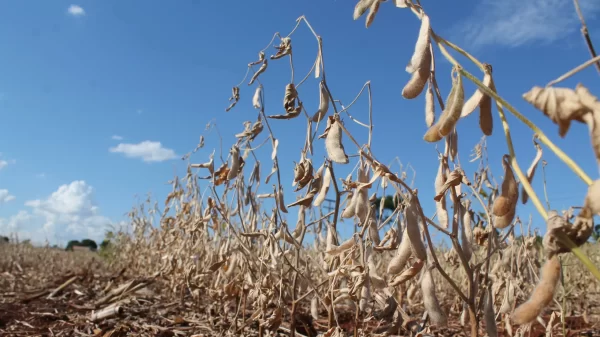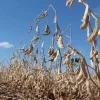By Brandon Moseley
Alabama Political Reporter
As was reported here on Tuesday the first weeks of the Summer of 2012 have affected Alabama’s farmers severely. The United States Department of Agriculture announced on Friday that Secretary Vilsacks has formally declared that 33 Alabama Counties are in a drought and announced that farmers in those counties will be eligible for low-interest federal loans.
Alabama Governor Robert Bentley said, “While much of the state has received rain this week, it is not enough to eliminate the severe and extreme drought conditions that many places are experiencing. Farmers across Alabama are suffering through what has been an extended drought from last year. We appreciate Secretary Vilsack’s response to this critical situation that affects so many Alabama families.”
Alabama Department of Agriculture and Industries Commissioner John McMillan said, “There are many growers of commodity crops such as corn, soybeans, cotton and peanuts, who have suffered damage from the drought. Farmers should contact their local office of the Farm Service Agency (FSA) to determine their eligibility and begin the process for loan application.”
Commissioner McMillan said that farmers in eligible counties have eight months from the date of a secretarial disaster declaration to apply for emergency loan assistance. The FSA will consider each emergency loan application based on objective standards with regard to production losses, security available and repayment ability.
Secretary Vilsack declared 33 counties “primary natural disaster areas.” They include: Autauga, Baldwin, Barbour, Bibb, Bullock, Butler, Chambers, Chilton, Clay, Cleburne, Coffee, Conecuh, Coosa, Covington, Crenshaw, Dale, Dallas, Elmore, Escambia, Geneva, Henry, Houston, Lee, Lowndes, Macon, Montgomery, Perry, Pike, Randolph, Russell, Talladega, Tallapoosa and Wilcox Counties.
The USDA names 12 other counties “contiguous disaster counties.” They are Calhoun, Cherokee, Clarke, Hale, Jefferson, Marengo, Mobile, Monroe, St. Clair, Shelby, Tuscaloosa and Washington Counties. Farmers in those counties are also eligible to receive federal loans.
Secretary Vilsack said, “Agriculture remains a bright spot in our nation’s economy and it is increasingly important that USDA has the tools to act quickly and deliver assistance to farmers and ranchers when they need it most. By amending the Secretarial disaster designation, we’re creating a more efficient and effective process. And by delivering lower interest rates on emergency loans and providing greater flexibility for haying and grazing on CRP lands, we’re keeping more farmers in business and supporting our rural American communities through difficult times. With these improvements, we’re also telling American producers that USDA stands with you and your communities when severe weather and natural disasters threaten to disrupt your livelihood.”
On Wednesday, Agriculture Secretary Tom Vilsack today announced program improvements that will deliver faster and more flexible assistance to farmers and ranchers devastated by natural disasters. Vilsack announced a final rule that simplifies the process for Secretarial disaster designations resulting in a 40% reduction in processing time for counties affected by disasters, a reduced interest rate for emergency loans effectively lowering the current rate from 3.75% to just 2.25%, and a payment reduction on Conservation Reserve Program (CRP) lands qualified for emergency haying and grazing in 2012, from 25% to just 10%.
More counties could be added to the disaster declaration is drought conditions persist. For a county to be declared a “primary disaster area” then drought conditions in that county have to have persisted for 8 consecutive weeks or more.
To monitor drought conditions in Alabama, the Southeast, and nationally go to:


















































